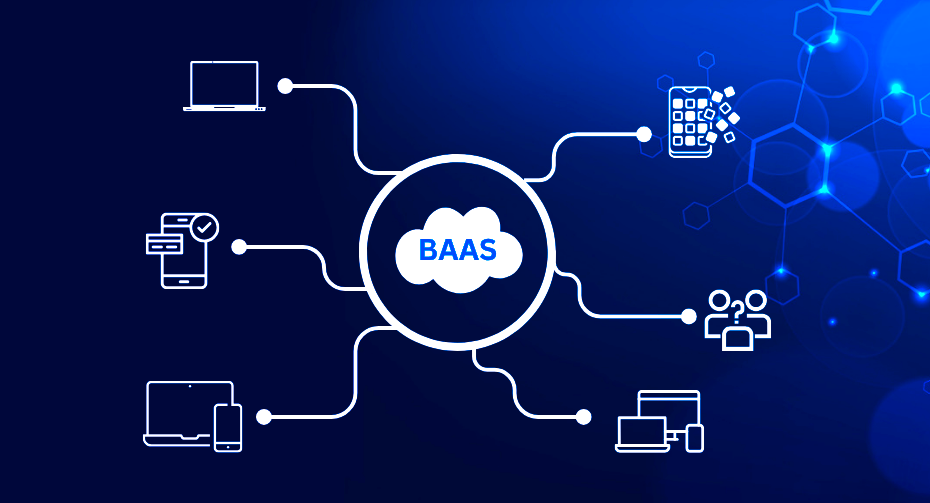Software development is one of the highest-paying careers that most students want to enrol in. You can easily categorize these career paths as full-stack developers, backend engineers, data scientists, DevOps engineers, data architects, etc. However, finding the best software fields to go into is not a piece of cake in 2025.
As we know, 4IR, or the Fourth Industrial Revolution, significantly amplified businesses’ reliance on software engineers. That is why the U.S. Bureau of Labor Statistics ranks software developers second among the most in-demand jobs of the next decade. This employment trend projects the addition of 410k+ new jobs in the United States for software engineers from 2022 to 2032.
Whereas it is crucial to choose a single software engineering field to pursue a career as a beginner. So, this article will share the top fields you can consider joining.

What is Software Engineering?
Software engineering is an approach to developing, shaping, deploying, maintaining, and examining software applications. Software engineers utilize various practices to deal with real-world problems and achieve maximum time and budget efficiency.
Moreover, modularity, maintenance, reusability, abstraction, agile methodologies, continuous integration and deployment are key software engineering principles.

Why Choose a Software Engineering Career?
The worldwide population of software developers and engineers is proliferating. Statista claims that the global figure of individuals associated with software engineering is 28.7 million, up from 24.5 million in 2020. The Developer Nation Community anticipates that the developers’ population will reach 45 million by 2030.
This data signifies that this career has an excellent scope for students. So, let’s discuss the key reasons to employ the software engineering profession:
Substantial Demand & Vast Opportunities
The software industry’s market share is expanding daily, driving the demand for skilled developers and engineers. The worldwide software market revenue in 2024 was 702 billion USD and Statista projects this value will reach 896.19 billion USD by the end of 2028.
This means the demand for software engineers shows no sign of slowing. Similarly, job opportunities are also rising when companies lay off management-related staff in the United States. Indeed, Amazon opened 3201, and Oracle offered 2125 jobs for programmers in October 2024, according to TrueUp.

Higher Salaries than Other Jobs
Another reason why most pupils choose this software-related field is the high salary. Undoubtedly, programmers, backend developers and data scientists receive generous pay. Glassdoor categories the annual income of software engineers into these sections:
Junior Software Engineer – $107K–$162K/year
Software Engineer – $128K–$207K/year
Senior Software Engineer – $178K–$262K/yr
Work From Anywhere
Unlike other jobs, coders are not forced to perform in-house employment only. The majority of IT companies allow their developers to work remotely. Therefore, if you pick this computer science discipline, you can work from home or anywhere. Withal, some companies prefer on-site work because of their projects or data sensitivity.
Room for Problem Solving & Creativity
Freedom for creativity and easy application of problem-solving approaches are benefits of choosing this career path. In this regard, you can’t only design innovative products and services for your company, but you can also introduce your own apps or system software using your scripting skills.
Top 12 Software Fields to Go Into
Let’s delve into the highly acclaimed software engineering career paths:
1. Backend Engineering
Backend engineering is one of the most critical software fields. It allows you to deal with business logic, the data access layer, servers, databases, and APIs. A backend engineer scripts server-side codes design APIs, handles datasets, and connects with data systems.
Furthermore, backend programmers closely coordinate with frontend developers to build, deploy, and run projects proficiently. So, a backend engineer is responsible for all behind-the-scenes activities and ensures maximum application optimization, security and scalability.
Hereof, a backend engineer should be able to address logic-based issues with precision and have a thorough grasp of algorithms and data structures. You can enter this field with a bachelor’s degree in computer science and an advanced understanding of server-side languages and frameworks.
Skills Required: Java, Python, Golang, C, C++, Ruby, PHP, and JavaScript
Median Salary of Backend Engineer: $145K/year

2. Frontend Engineering
Unlike backend development, frontend engineering deals with the interface of an application or website that is accessed by end users. Indeed, frontend engineers craft, maintain, and design the software’s UI elements. They also take care of loading speed, security, and compatibility of visual components on different devices.
Moreover, you should have excellent designing and coding skills if you want to join frontend development. Frontend programming is considered 25%, and backend development covers 75% of an application, but client-side development is still crucial. End users approach your application or software through its visible looks.
However, a BSCS degree is optional for frontend engineers. Yes, you can enter this field with a web or software development course, but make sure you are familiar with frontend programming technologies and have enough knowledge of algorithms and data models.
Skills Required: HTML, CSS, React, Angular, Backbone, Polymer and UX and UI frameworks
Median Salary of Frontend Engineer: $160K/year

3. Full Stack Engineering
Modern applications are divided into two major parts: client-side and server-side development. The software development field that handles an application’s backend and frontend sections refers to full-stack engineering. These specialists are known as jacks of all trades because they can develop apps from alpha to omega.
Indeed, a full-stack engineer specializes in crafting UIs, testing the interactivity of visual elements, and managing databases, servers, and infrastructure. That is why this high-level software engineering field requires a graduation or bachelor’s degree in CS, CE, or related programs.
Furthermore, before choosing this line of work, you must ensure that you have complete control over all dev stages, data structures, performance evaluation, scalability, and performance.
Skills Required: HTML, CSS, React, Angular, Backbone, Polymer and UX and UI frameworks alongside Java, Ruby, Perls, Python, Docker, C, C++, Kubernetes, Go and JS
Median Salary of Full-Stack Engineers: $149K/year

4. Data Science
Data science is a branch of SE that extracts actionable insights from data. It utilizes multiple approaches from artificial intelligence, computer engineering, mathematics, and statistics to evaluate large datasets. The use of data science is rising in prominence when it comes to getting meaningful data for online payments, finance, medicine, and commerce.
When discussing the role of data scientists, we should note that they blend technical, analytical, and conventional approaches to defining and examining data. They are responsible for providing metrics and insights that aid businesses in decision-making. These IT experts use machine learning, predictive modelling, and data visualization processes in this regard.
As one of the most demanding tech jobs, a data scientist must have a master’s or bachelor’s degree in any computer program. You must also have a keen fascination with probability, mathematics, statistics, and programming if you want to join this field.
Skills Required: Python, SQL, SAS, R, Talend and Alteryx APA
Median Salary of Data Scientist: $162K/year

5. DevOps Engineering
DevOps is an agile set of methods for embedding and streamlining IT operations (Ops) and development tasks (Dev). Thus, a DevOps engineer simplifies the development cycle by handling infrastructure, codes, servers, and further toolchains.
Although the responsibilities of a DevOps specialist could vary from company to company, this professional ensures the smooth delivery of projects from beginning to end. DevOps must be aware of scripting, cloud computing, containers, networking, and infrastructure automation.
Apart from that, you must have strong interpersonal skills to become a DevOps engineer. Yes, a DevOps expert’s primary duty is to coordinate between operations and the development team. If we discuss the required degree, then a bachelor’s or an associate program with certifications like SQL server development or Linux administration would be enough to pursue this career path.
Skills Required: Python, Java, JS, C++, Docker, Kubernetes, HashiCorp stack, Apache Mesos and Jenkins
Median Salary of DevOps Engineering: $142K/year

6. Cloud Computing
Cloud computing refers to the availability of virtual and physical servers, storage, and infrastructure resources over the Internet. Cloud computing offers various models to businesses, such as Backend as a Service (BaaS), Platform as a Service (PaaS), Infrastructure as a Service (IaaS), and Software as a Service (SaaS). The reputable platforms that grant these services are AWS, Google Cloud, Firebase, Azure, etc.
With substantial growth, cloud computing definitely has a great scope. According to a forecast report by Market.us, the cloud computing market size will hit 2974.6 billion USD by 2033. This figure was only 629.5 billion USD in 2023. So you can begin your professional career as a cloud engineer and excel in this particular field.
Cloud engineers are responsible for developing, deploying, maintaining and running a company’s cloud infrastructure. They also aid businesses in getting maximum scalability, cost efficiency, easy migration, and optimized storage. You can join this software field with a bachelor’s degree in CS or CE. Some certifications from Amazon Web Service (AWS) or Microsoft could also be beneficial in this regard.
Skills Required: SQL, Java, Go, Ruby, Python, Docker, Kubernetes, Linux OS, and ASP.NET
Median Salary of Cloud Engineer: $152K/year

7. Mobile Development
The number of smartphone users is accelerating daily. There are probably over 6.1 billion global smartphone users, which means the need for mobile developers is snowballing. Undoubtedly, mobile development is another in-demand software field.
Mobile developers are professionals who build, deploy, and run iOS or Android applications for smart devices. They must be skilled at programming technologies and frameworks typically used for building, designing, and testing apps for mobile phones, tablets, etc.
Another responsibility of mobile app engineers is establishing the best UI (user interface) and UX (user experience). Although you can design mobile apps with certifications or coding skills, you must have a degree in IT or CS.
Skills Required: Java, Kotlin, Swift, Object-C, React Native, Xamarin, Flutter
Median Salary of Mobile Developer: $127K/year

8. Cybersecurity Analytics
Cybersecurity is crucial for safeguarding your company’s data, systems, and networks from unauthorized access and digital attacks. To avoid such threats, a cybersecurity professional secures networks, hardware, and software assets. These personnel also design and implement a GRC strategy to improve cybersecurity.
However, it is crucial to understand the difference between a cybersecurity engineer and an analyst. An engineer emphasizes creating, executing, and managing safety protocols and infrastructures. Conversely, an analyst performs the primary duties of surveilling and addressing cyber threats.
If we discuss the projected growth for both of these professions, there will be a 31% increase in such jobs by the end of 2029. A bachelor’s degree in cybersecurity, SE, or CS alongside CISSP, CompTIA Security+, and CEH is well-suited to excel in this domain.
Skills Required: C, C++, Java, Python, Ruby, and reverse engineering
Median Salary of Cybersecurity Engineer: $155K/year

9. Quality Assurance
Quality assurance or QA engineers play a pivotal role in the application software cycle and distribution. A QA engineer is accountable for software inspection and quality management before releasing it to end users. In this regard, these professionals conduct tests on multiple stages of development and inspect and fix glitches.
They also team up with software developers and keep them familiar with the quality standards of the company and the programming industry. Compared to quality control, quality assurance is a broad approach that takes place during the whole development process. So, if you are joining this occupation, ensure you have proactive problem-solving, critical thinking and communication skills.
Like other software engineering professions, you can join this career with at least a bachelor’s degree in any computer science program.
Skills Required: C#, JS, Java, LoadRunner, QA Wolf, Testim, Python, Ruby and Selenium WebDriver
Median Salary of QA Engineer: $109K/year

10. Video Game Development
Another exciting software development career that you can join is video game development. This approach deals with various components of game development, such as game logic, UI, AI and visuals. If we specifically talk about the role of a video game developer, he is in charge of developing, deploying, and maintaining software behind a video game.
Unlike other IT professions, video game development offers more opportunities for self-employment. Yes, you can simply design and release a game on relevant platforms by following their community standards.
By the same token, it is also not mandatory to pursue this career with a college degree. Indeed, this profession lets you enter the arena with game design courses, powerful storytelling, and character-building attributes.
Skills Required: C, C++, C#, Java, Unity 3D, Autodesk Maya, Swift, DirectX and OpenGL
Median Salary of Video Game Developer: $124K/year

11. Graphics Development
Students who are skilled at using graphic design software and can manage the aesthetics of UIs well must enter this field. A graphics engineer utilizes a blend of artistic and technical abilities to craft avatars and develop software to render, light, shadow, and administer objects. With scripting technologies, these experts also deeply understand 3D and 2D graphics and associated tools.
These experts usually work for game, computing-aided drafting (CAD), and video production industries to build highly engaging user interfaces. However, their job has excellent familiarity with frontend developers as well. The students wanting to enter this software engineering field must have a CS or SE degree.
Skills Required: C++, OpenGL, Unity, Debugging, Photoshop, DirectX, Unity 3D, Assembly and C
Median Salary of Graphics Engineer: $110K/year

12. Software Integration
The current landscape of smart devices, convergence systems, and the Internet of Things (IoT) is amplifying the demand for software integration engineers. A software integration engineer flawlessly syncs and runs disparate systems and affirms that diverse software and hardware components work harmoniously.
In this regard, professionals must have in-depth knowledge of middleware, APIs, tailored codes, and incompatibility between different systems. Similarly, they must master software development, data handling, and system architecture and be completely aware of recent integration approaches.
This field is divided into multiple subfields, such as data integration engineer, system integration engineer, cloud integration engineer, IoT integration engineer, etc. With a bachelor’s degree in any of the computer science fields, these experts typically join the IT industry as software engineers. Afterwards, after excelling in their careers, they go into this profession.
Skills Required: iPaaS, C#, Python, Java, Node.js, Assembly, C, C++, SQL and API Management
Median Salary of Integration Engineer: $141K/year

Conclusion
Acquiring a top-paying software job in any of Silicon Valley’s companies is every engineer’s dream. It is only possible when you choose the software field that best matches your passion and skills. Hence, this article presents one of the leading software careers.
Indeed, we share leading IT careers like DevOps, backend engineering, data science, cloud computing and full-stack programming. Although factors like market demand and salary can play vital roles in choosing a software field, you should keep your interest on top of all these things.
So, achieve excellence in your field, not mediocrity as a developer!



